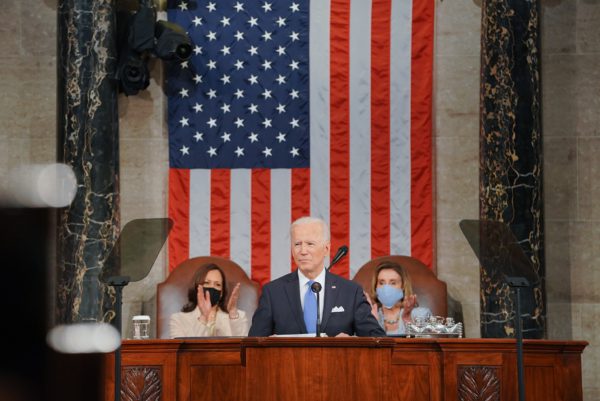President Biden's reconciliation bill includes many controversial proposals that have struggled even to unify Democrats. One involves a plan to compel banks to monitor purchases above $600. Its proponents argue that bank account monitoring would help the IRS fight tax evasion.
However, associations representing thousands of financial institutions have come out against the proposal. Collectively, they have launched a formidable grassroots lobbying campaign.
For instance, the Independent Community Bankers of America alone has encouraged people to send more than 400,000 messages to members of Congress.
The Growing Debate
Meanwhile, Larry Keane of the National Shooting Sports Foundation says the plan would enable the IRS to track gun buyers. Keane reports how this added to privacy concerns in hearings on Capitol Hill:
Sec. Yellen balked at the notion the government is intruding on financial privacy, explaining the IRS already has “a wealth of information about individuals,” citing examples such as the W-2 form filed for a person's job, but said the IRS needs more information on “higher-income individuals who have opaque sources of income … not low-income people.”
U.S. Sen. Cynthia Lummis (R-Wyo.) grilled Sec. Yellin over the proposal in a Senate hearing.
“There are obvious privacy concerns for all Americans here and this represents a dramatic new regulatory burden for community banks and credit unions in Wyoming and elsewhere,” Sen. Lummis said. “Do you distrust the American people so much that you need to know when they bought a couch? Or a cow?”
Or a gun.
The debate comes after Calif. Gov. Gavin Newsom signed Assembly Bill 173 into law. Consequently, the California Firearm Violence Research Center can access data on the state's 4.2 million gun owners. (RELATED: California Gives Academics Access to Gun Owners' Personal Information)
Conservative Proposals
Fearful that the sacrifice of gun owner privacy will go nationwide, conservative lawmakers have pushed back in a two-pronged attack to educate the public and protect taxpayer rights.
SEE ALSO: Frequency of Firearm Violence Prevention Greatly Underestimated
For example, Sen. John Boozman (R-Akr.) criticized the proposed reporting requirements in The Hill as ripe for abuse by unelected bureaucrats. Last month, Sen. Mike Crapo (R-Idaho) and Rep. Kevin Brady (R-Texas) introduced the Tax Gap Reform and Internal Revenue Service (IRS) Enforcement Act.
Brady explained his motivations:
“Before American taxpayers are subjected to 80,000 new IRS agents and surveillance of their private bank accounts, let's begin with an accurate, independent estimate of Treasury's so-called ‘tax gap.' This bill also protects taxpayers from IRS targeting based on their political or religious beliefs and closes loopholes that risk leaking private taxpayer returns.”
Other Republicans have joined their efforts or introduced legislation of their own to lower the risk of another IRS targeting scandal. (RELATED: Feds Using New Terrorism Fears to Excuse Government Snooping)
Negotiating the Reconciliation Bill
Most importantly, the reconciliation bill remains in legislative limbo. Sen. Joe Manchin's (D-W.Va.) red line on the Hyde Amendment leaves his party at an impasse. Meanwhile, Arizona Sen. Krysten Sinema (D) stands tall against progressive activists determined to end her career.
Whether they'll continue to withstand pressure from their left flank remains to be seen.
The opinions expressed in this article are those of the author and do not necessarily reflect the positions of American Liberty News.


